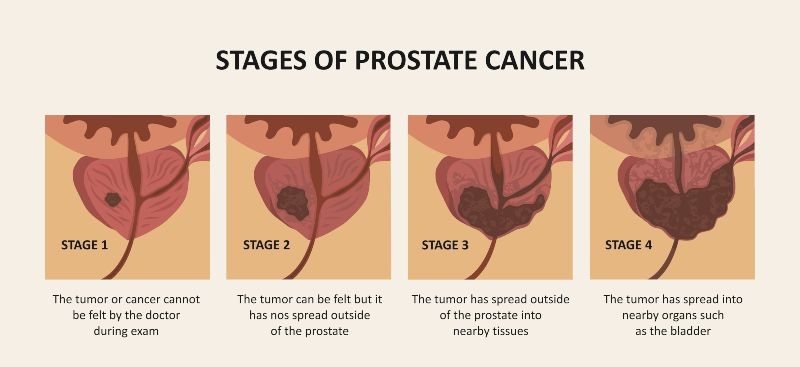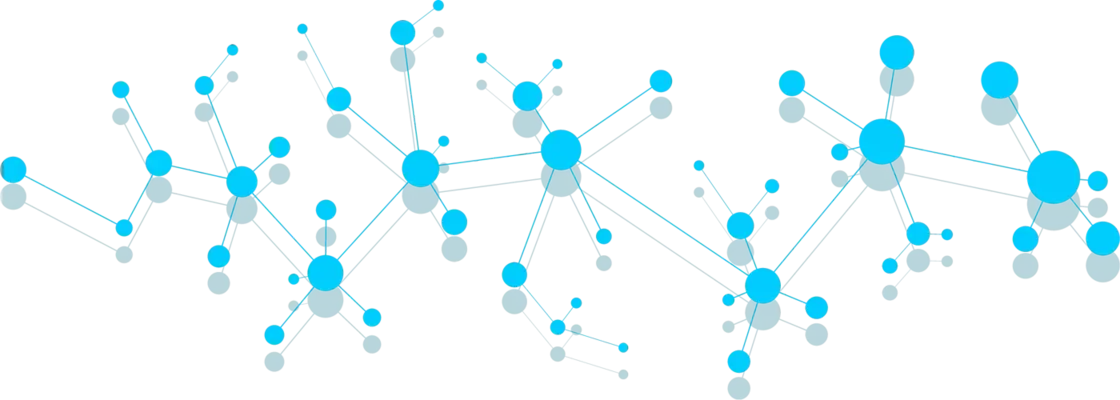The prostate is a male gland has the size of a walnut and can be found between the bladder and penis. It produces a fluid that is important for nourishment and quality of the sperm. This alkaline whitish fluid also neutralizes the vaginal PH (which is acidic) to help sperm movement last for longer. When a change occurs in the DNA of prostatic cells, prostate cancer develops, which spreads rapidly. The earlier the cancer is detected, the easier the treatment and the better the prognosis.
Prostate Cancer
There are several types of prostatic tumors not all are malignant (prostate cancer) some are benign which means can cause symptoms but aren’t dangerous. Tumors occur when abnormal cells divisions take place due to DNA errors. The malignancy grade is determined mostly by how fast and random this happens also the extent in which these cells disrupt and enter other tissues. Over time the amount of cancer cells in the prostate increase and could through the vascular area of the prostate spread to other parts in the body.
Prostate cancer causes
Age, a high body mass index (BMI), unhealthy diet, smoking, being of African heritage or a positive family history are all possible prostate cancer causes. Research showed that if a first-degree family member on the paternal side of the family got prostate cancer the chances that you get it are significantly higher, sometimes there is a link between familial breast cancer and Prostate cancer.
Prostate Cancer Symptoms
Unfortunately, prostate cancer symptoms are vague in early stages and usually only gets discovered when it has already spread to other tissues. Symptoms that could be indicators for prostate cancer are:
- Urinary tract problems such as an interrupted or difficult urine flow
- Blood in urine or semen
- Erectile dysfunction
- Losing weight without following a diet or trying to do so.
- Feeling pain in the bones
prostate cancer diagnosis
If you have experienced any of the above possible symptoms of cancer you should visit your doctor for a checkup. It is advisable if you are above 50, have a positive family history or are of African heritage to visit your doctor annually even in the absence of symptoms for a routine preventive checkup.
The initial prostate cancer diagnosis is done by examining the prostate; this is done by the physician through a rectal examination this is usually a source of stress for patients but is really a very simple pain-free examination. The physician can determine the size, any nodules or irregularities of the prostate. The second noninvasive test is a blood test that detects prostate specific antigen (PSA) if these levels exceed a specific threshold, it’s a strong indicator for prostate cancer but could also be a sign of engorgement or inflammation. If any of these two tests give abnormal findings an MRI (Magnetic Resonance Imaging) and additional blood tests are done. The MRI can give more information about exact factor of growth, nodules, metastasis etc. of the findings of the physical examination, and blood tests can differentiate between inflammation and cancer as a reason for the elevated PSA.
Prostate Cancer treatment
After the diagnoses of prostatic cancer there are several prostate cancer treatment methods that will be considered depending on age, stage and general health condition of patient.
- Surgery
- Radiation therapy (internal and external radiation) this treatment however might increase the risks of developing bladder and gastrointestinal cancer)
- targeted drug therapy
- Chemotherapy
- Immunotherapy
- hormone therapy
Prostate Cancer Stages

There are four prostate cancer stages, and since prostate cancer growth is slow, the survival rate is very high
Stage I of prostate cancer
Cancer is loculated and hasn’t spread outside of the prostate gland, it can’t be felt during the physical examination, PSA levels are below 10ng/ml and the cells are still very similar to the original prostate cells and their growth rate is slow. Treatment is mostly surgical. Five-year survival rate is 100%.
Stage II of prostate cancer
The tumor is still only in the prostate but could be felt during the physical examination, PSA levels are above 10ng/ml, but the cells are still well differentiated. Treatment is surgical and radiation and hormone therapy are added to prevent its return.
Stage III of prostate cancer
In this stage the cells are no longer well differentiated and grow outside the prostate gland. Doctors treat stage III with surgery “a radical prostatectomy”, hormone therapy or radiation therapy. The rate of recurrence at this stage is large, and doctors’ advice patients to adhere to repeated examinations for early diagnosis and effectively target cancer cells if they appear again.
Stage IV of prostate cancer
The cancer has spread to lymph nodes or other parts of the body treatment is usually by hormone therapy (systemic) or a combination of it alongside chemo and radiation therapy rarely surgery. Five-year survival rate is 29% and a continuous follow-up and monitoring plan should be set up.
Do not be afraid to discuss with your doctor
Being diagnosed with prostate cancer is a very stressful experience and it has a huge psychological impact on the patient.
Do not hesitate to discuss all your worries, fears, possible treatments and their complications and your prognosis. You should also discuss important factors with your doctor that could influence your treatment:
- Are you ready to receive treatment?
- Do you suffer from other chronic diseases?
- What is your age and what is your family medical history?
- Possibility of recovery and tolerability of side effects?
If you want to avoid some complications resulting from prostate cancer treatments such as impotence and enuresis, we advise you to discuss this with our andrology team at Bedaya Hospital they will carefully access which side effects of all treatments would have the biggest impact on your daily life and try to avoid it if possible while making up your treatment plan.
Prostate cancer prevention
- Maintain a healthy BMI
- Have a variable diet rich in minerals, fibers, vitamins and antioxidants
- Drink plenty of water
- Commit to exercise.
- Regular preventive checkups after the age of 50






